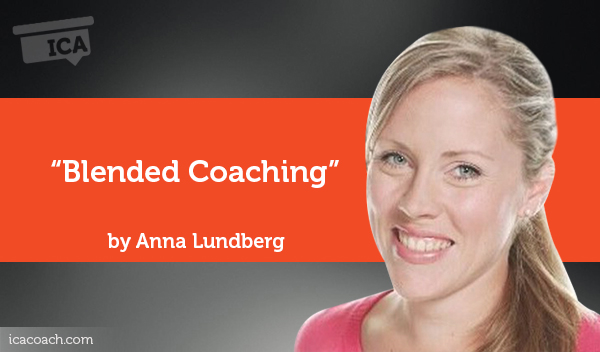
Research Paper By Anna Lundberg
(Business Coach, UNITED KINGDOM)
How can a blend of consulting and coaching offer additional value to a client, without taking away from the benefits of coaching?
Abstract:
As the coaching industry continues to grow, both theoretical definitions and practical applications of what exactly ‘coaching’ entails can vary. Boundaries are further blurred as some professionals offer a blended approach of coaching with elements of consulting. Given the lack of regulation in the industry, it is important to uphold a standard of professionalism and ethics by being very clear on what is and isn’t appropriate within this context. This paper looks at definitions of ‘pure coaching’ and ‘pure consulting’, the benefits of a blended approach of coaching and consulting, the risks or ‘watchouts’ when mixing these two approaches, and what might be an ‘optimal blend’. It argues that, depending on the context, the topic, and the client and his objectives, the coach can serve the client more effectively by offering a blended approach that introduces an element of consulting. In order to offer additional value to the client without taking away from the benefits of pure coaching, it is important to set clear expectations for the coaching relationship and to make sure that the client still remains ‘in the driver’s seat’ and feels empowered to make his own decisions.
Introduction
Perhaps as a result of the relative newness of coaching as an independent discipline and the lack of regulation in the industry, there is a lack of consensus when it comes to definitions of ‘coaching’ and the role of a ‘coach’. Pure coaching as defined by the International Coach Federation and as taught by schools such as the International Coach Academy is a field that is distinct from others such as therapy, consulting, mentoring and training. Coaching according to these institutions puts the coach and client as partners in a process where the client sets the agenda and the coach supports the client in reaching his objectives without actively advising or counselling him in any way. It is important here to never ‘tell’ but only ‘ask’, to maintain the client in the ‘driver’s seat’, and not to advise or guide in any way. A coach’s expertise, therefore, is required only in regard to the coaching process, not in any particular subject matter.
In common usage, however, definitions of coaching as well as other related professions such as consulting and mentoring can vary. ‘Coaching’ has become a buzzword that is used to describe a range of different roles and may not accurately represent what is actually happening. Often individuals calling themselves coaches are actually more like consultants, using their expertise to advise their clients in an area such as business and online marketing. The very fact that a coach is said to operate in a particular niche assumes that her expertise and experience is relevant to the coaching process. The situation is also complicated by the fact that there are professionals offering a blended approach, thus blurring the boundaries further.